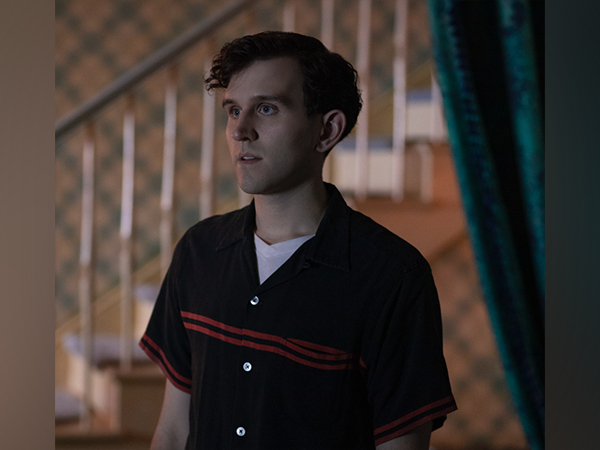PM Modi, President Macron launch India-France Roadmap on Artificial Intelligence
Feb 12, 2025

Paris [France], February 13 : India and France signed a declaration of Intent on establishing a partnership on Advanced Modular Reactors and Small Modular Reactors, with Prime Minister Narendra Modi and President Emmanuel Macron also launching an India-France Roadmap on Artificial Intelligence (AI).
The joint statement released at the conclusion of PM Modi's visit to France said the two leaders reiterated their call for reformed and effective multilateralism to sustain an equitable and peaceful international order, address pressing global challenges, and prepare the world for emerging developments, including in the technological and economic domains.
The two leaders stressed the urgent need for reforming the United Nations Security Council and agreed to coordinate closely in multilateral forums, including on UNSC matters.
France reiterated its firm support for India's permanent membership of the UNSC. The two leaders agreed to strengthen conversations on regulation of use of the veto in case of mass atrocities. They held extensive discussions on long-term global challenges and current international developments and agreed to intensify their global and regional engagement, including through multilateral initiatives and institutions.
Acknowledging the paramount importance of advancing scientific knowledge, research and innovation, and recalling the long and enduring engagement between India and France in those areas, President Macron and Prime Minister Modi announced the grand inauguration of the India-France Year of Innovation in New Delhi in March 2026 by launching its Logo.
Recalling the deep and longstanding defence cooperation between France and India as part of the Strategic Partnership, President Macron and PM Modi welcomed the continuation of the cooperation of air and maritime assets in line with the ambitious Defence Industrial Roadmap agreed in 2024.
Both leaders commended progress in collaboration in construction of Scorpene submarines in India, including indigenization, and in particular the work carried out with a view to the integration of DRDO developed Air Independent Propulsion (AIP) into P75-Scorpene submarines and the analyses conducted regarding the possible integration of the Integrated Combat System (ICS) into the future P75-AS submarines.
Both leaders welcomed the commissioning of the sixth and final submarine of the P75 Scorpene-class project, INS Vaghsheer in January this year.
Both sides welcomed the ongoing discussions in missiles, helicopter engines and jet engines.
They also welcomed the excellent cooperation between the relevant entities in the Safran group and their Indian counterparts.
Prime Minister Modi also invited the French Army to take a closer look at the Pinaka MBLR, emphasizing that an acquisition of this system by France would be another milestone in Indo-French defence ties.
In addition, President Macron welcomed the decision to include India as an observer to the Eurodrone MALE programme managed by OCCAR, which is another step forward in the growing strength of partnership in defence equipment programmes.
The two leaders welcomed the launch of FRIND-X (France-India Defence Startup Excellence) in Paris on 5-6 December 2024, involving the DGA and the Defence Innovation Agency, in line with the vision enshrined in HORIZON 2047 and the India-France Defence Industrial Roadmap. This collaborative platform brings together key stakeholders across both defence ecosystems, including defence startups, investors, incubators, accelerators, and academia, fostering a new era of defence innovation and partnership.
In order to deepen the research and development partnerships in defence, both leaders stressed on the early launch of an R&D framework through a Technical Arrangement for cooperation in defence technologies between DGA and DRDO. In addition, both leaders welcomed the ongoing discussions between L'Office National d'Etudes et de Recherches Aerospatiales (ONERA) and Defence Research and Development Organisation (DRDO) to identify technologies for R&D partnerships.
India welcomed the participation of Indian students, alongside French students, in the challenge on distributed intelligence launched recently by Interdisciplinary Center for Defence and Security from the Institut Polytechnique de Paris and encouraged organizing of more joint challenges in the future to evoke the interest of students in defence.
Both leaders had a detailed conversation on international issues, including on the Middle-East and the war in Ukraine. They agreed to pursue their efforts to coordinate and remain closely engaged on a regular basis.
The two leaders recalled the launch of the India-Middle East-Europe Corridor (IMEC) on the margins of the G20 Summit in Delhi in September 2023 and agreed to work together more closely on implementing the initiative. Both leaders stressed the importance of IMEC to foster connectivity, sustainable growth trajectories and access to clean energy across these regions. In this regard, they acknowledged the strategic location of Marseille in the Mediterranean Sea.
They underlined the key importance of strengthening EU-India relations, in view of the upcoming India-EU summit at the earliest possible in New Delhi.
They appreciated the growing cooperation in trilateral format with Australia and with the United Arab Emirates.
They commended the joint military exercises that took place between France, India and the United Arab Emirates, as well as the participation of India, France and Australia in each others' multilateral military exercises.
At the invitation of the United Arab Emirates and India, France joined the Mangrove Alliance for Climate.
The two leaders underlined their common commitment to a free, open, inclusive, secure and peaceful Indo-Pacific region.
They reiterated their desire to continue to deepen bilateral cooperation in the space sector. They commended the strength of the partnership between CNES and ISRO and supported the development of collaborations and synergies between their space industries.
The two leaders reaffirmed their unequivocal condemnation of terrorism in all its forms and manifestations, including cross-border terrorism. They called for the disruption of terrorism financing networks and safe havens. They further agreed that no country should provide safe haven to those who finance, plan, support, or commit terrorist acts.
The leaders also called for concerted action against all terrorists, including through designations of individuals affiliated with groups that are listed by the UN Security Council 1267 Sanctions Committee.
The two sides emphasized the importance of upholding international standards on anti-money laundering and combating the financing of terrorism, consistent with Financial Action Task Force recommendations. Both countries reiterated their commitment to work together in FATF, No Money For Terror (NMFT) and other multilateral platforms.
They commended the cooperation between the National Security Guard (NSG) of India and the Groupe d'Intervention de la Gendarmerie Nationale (GIGN) for agency-level cooperation in the field of counter-terrorism.
The two leaders also looked forward to the successful organization of Milipol 2025 in New Delhi.
They welcomed the ongoing discussions to create a comprehensive framework for an enhanced bilateral cooperation in the civil aviation sector, which are at advanced stages.
Prime Minister Modi and President Macron launched an India-France Roadmap on Artificial Intelligence (AI), rooted in the philosophical convergence in their approaches focusing on the development of safe, open, secure and trustworthy artificial intelligence. They welcomed the inclusion of Indian startups at the French Startup Incubator Station F.
They also welcomed the expanded possibilities for using India's real-time payment system - Unified Payments Interface (UPI) - in France.
The two leaders reiterated the strategic significance of cyberspace and their wish to strengthen their coordination at the United Nations regarding the application of international law and the implementation of the framework for responsible State behaviour in cyberspace, as well as the need to address issues arising from the proliferation of malicious cyber tools and practices.
Prime Minister Modi and President Macron stressed that nuclear energy is an essential part of the energFy mix for strengthening energy security and transitioning towards a low-carbon economy.
Both leaders acknowledged the India-France civil nuclear ties and efforts in cooperation on the peaceful uses of nuclear energy, notably in relation with the Jaitapur Nuclear Power Plant Project.
They welcomed the first meeting of the Special Task Force on Civil Nuclear Energy, and welcomed the signing of a letter of intent on Small Modular Reactor (SMR) and Advanced Modular Reactor (AMR) and the Implementing Agreement between India's GCNEP, DAE and France's INSTN, CEA for cooperation in training and education of nuclear professionals.
The two leaders reaffirmed their countries' commitment to jointly address the environmental crises and challenges including climate change and promoting sustainable lifestyles. The leaders welcomed the renewal of bilateral cooperation in the field of environment between the Ministries of Environment.
Both leaders reiterated their commitment to the principles established by the Paris Pact for People and the Planet for reform of the international financing system towards supporting vulnerable countries in addressing both the eradication of poverty and the preservation of the planet.
Both leaders affirmed the significance of United Nations Oceans Conference (UNOC-3) as an important milestone in international efforts towards conservation and sustainable use of oceans. Prime Minister Modi offered India's support to France for UNOC-3 in June 2025.
The two leaders welcome the partnership between Proparco and the concerned Indian microfinance institutions for an equity agreement of 13 million Euros in the areas of financial inclusion and women empowerment. They also commended the strong and fruitful cooperation within the framework of the Franco Indian presidency of the Coalition for Disaster Resilient Infrastructure and the International Solar Alliance.
They lauded the launching of the India-France Indo-Pacific Triangular Development Cooperation, aiming to support climate- and SDG-focused projects from third countries in the Indo-Pacific region.
Noting the record level of bilateral trade in 2024, they acknowledged that there is vast untapped potential for trade and investment between the two countries. Both leaders highlighted the need to maintain strong confidence for companies investing in France and in India.
Prime Minister Modi congratulated President Macron on the successful organization of the Paris Olympics and Paralympics 2024 and thanked President Macron's willingness to share France's experience and expertise regarding the organization and securing of major international sporting events in the context of India's bid to host the Olympics and Paralympics Games in 2036.
Both Leaders welcomed the launch of a regional edition of the Raisina Dialogue focusing on Mediterranean issues in Marseille in 2025, to foster high-level dialogue involving representatives of governments, industry leaders, experts on trade and connectivity issues and other relevant stakeholders with an aim to enhance trade and connectivity between the Mediterranean and the Indo-Pacific regions.
Both leaders welcomed the successful launch in September 2024 of the International Classes Scheme under which Indian students are taught French as a foreign language, and methodology and academic contents in highly reputed French universities in France during one academic year, before entering their chosen curricula in France.
It will create conducive conditions to increase student mobility and meet the target of 30,000 Indian students in France by 2030. In that regard, they welcomed the rising number of Indian students in France, with 2025 figures expected to reach an unprecedented 10,000.
To foster their dynamic and comprehensive Strategic Partnership, both countries committed to constantly deepen their long-term cooperation following the ambitions expressed in the bilateral Horizon 2047 Roadmap.




















